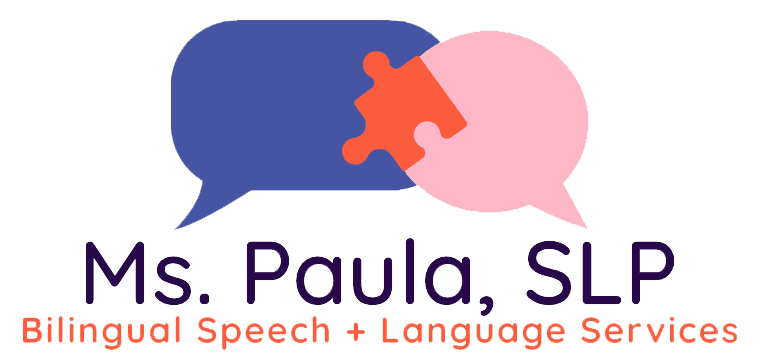Resources
Recent Posts
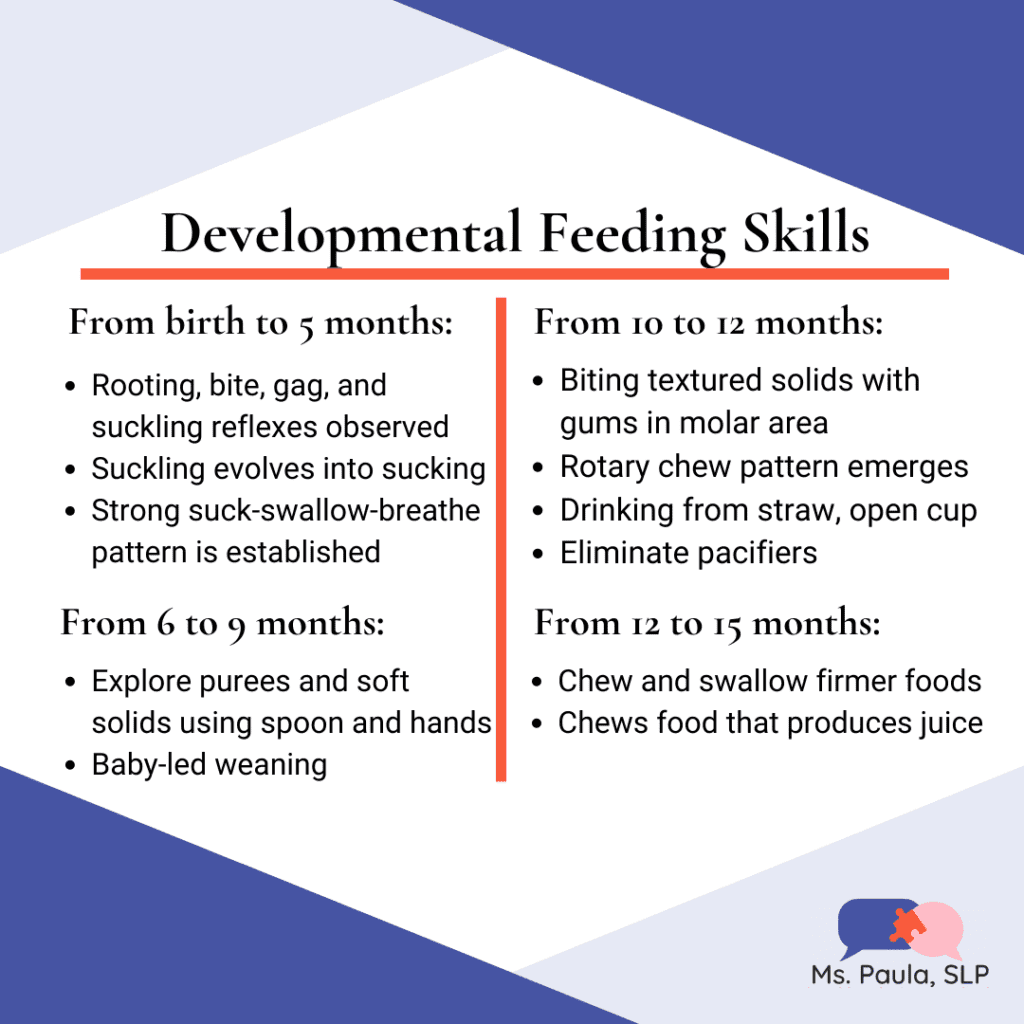
Feeding Concerns
For children with feeding and swallowing disorders mealtime is often stressful and can be unpleasant. Parents and caregivers of these children may also find it difficult to ensure their child in consuming the proper nutrients in their diet.
These disorders are typically multi-faceted and may be caused by sensory issues, behavioral problems, anatomical differences, or medical conditions and medications. When left untreated, problems with feeding or swallowing can lead to dehydration, malnutrition, aspiration, pneumonia, or social-emotional issues related to food and/or mealtime. If you are concerned about your child’s feeding, click the link below to complete the Feeding Matters Infant and Child Feeding Questionnaire©.
A team approach to treatment is recommended, and speech-language pathologists (SLPs) can be vital to identifying a disorder and providing effective, evidence-based treatment.
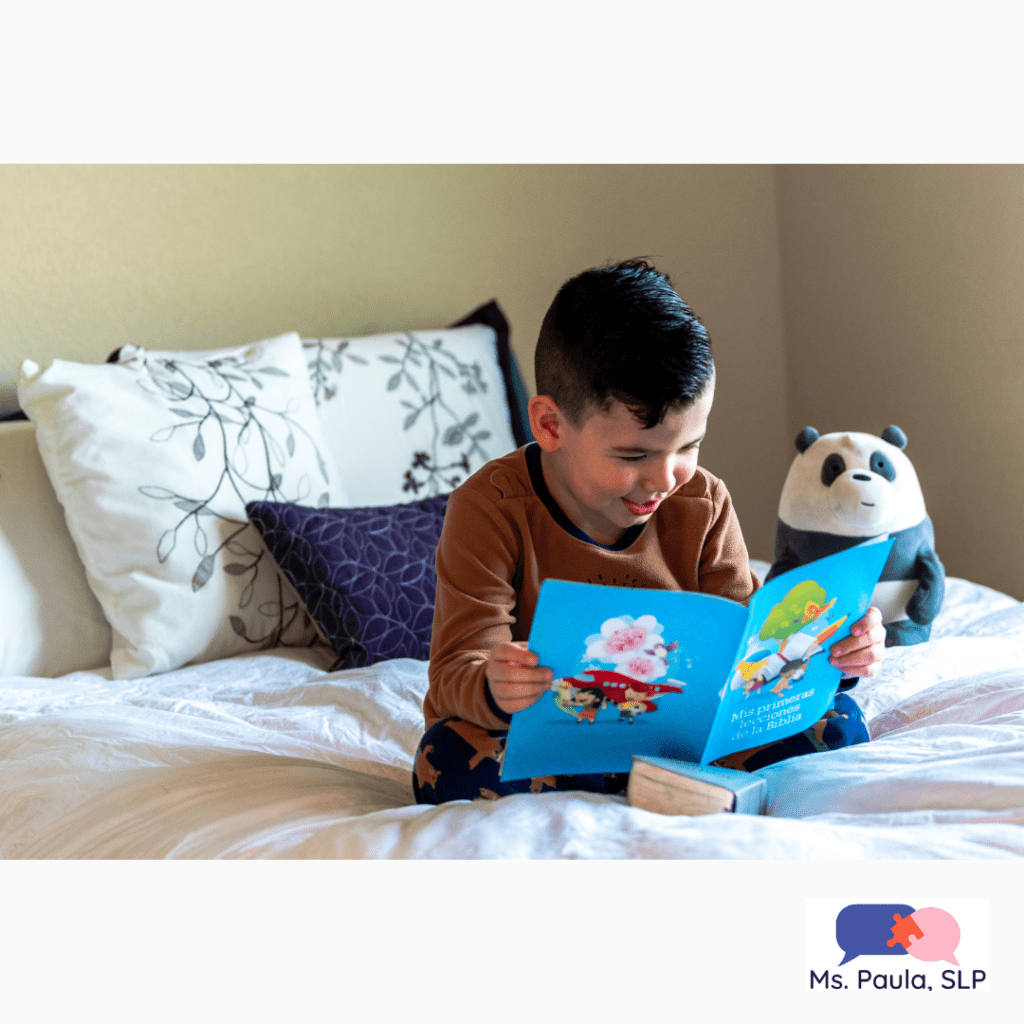
Reading Aloud
Research has demonstrated that reading aloud is the most important intervention that parents and caregivers can do to help prepare children for learning and reading. Reading aloud with your child supports language development, builds literacy skills, supports brain development, and demonstrates that reading is important, enjoyable, and valuable.
Setting aside time to read together is a great way to create a special routine and establish a life-long love of books. If your child has difficulty staying still or remaining engaged, try to select books that are fun, interesting, and motivating. Little ones love books that are interactive, such as those that have touch-and-feel or lift-the-flap components.
When browsing for new books, allow children to provide their input and select what looks appealing to them. Similarly, by giving your child the opportunity to choose what books are read each day, you may find that they feel more empowered and inclined to participate!
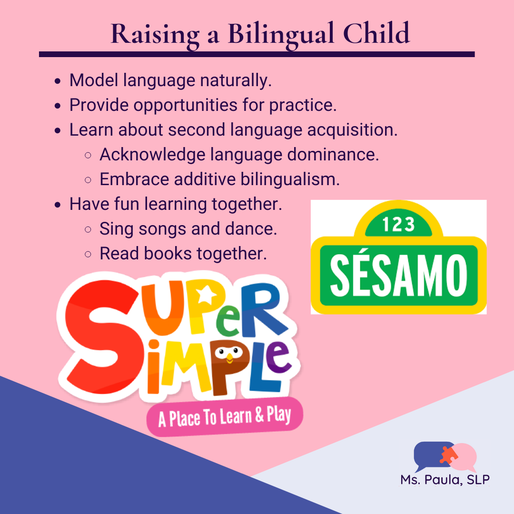
Bilingualism
Learning more than one language is widely encouraged and recognized as a valuable life skill. It has become increasingly common for children to be raised bilingually. While the benefits of being bilingual (or multilingual) are undeniable, it can be challenging to add and maintain a second language.
Parents and educators can support dual language learners using a variety of methods, strategies, and resources. Of these, the most important are high-quality exposure and frequent practice. Listening to songs and reading books in both languages are great ways to support bilingualism at home. Using fun and engaging resources, like those provided by Sesame Street and Super Simple, can help stimulate and motivate your child. Click below to read more about second language acquisition.
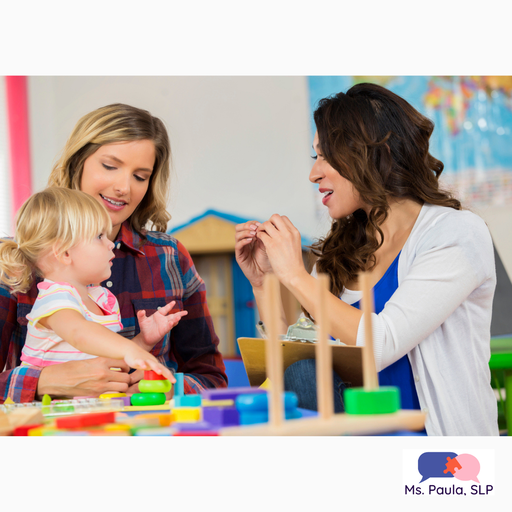
From Whining to Signing
Parents of early communicators sometimes struggle to understand what their child wants or needs, leading to frustration on both sides. Children will often whine or scream until they are satisfied. By teaching children simple signs from a young age, we can improve their communication abilities and enjoy positive social interactions more often.
Practice pairing simple functional signs with spoken words in everyday interactions with your child. By modeling them across familiar contexts, your child will begin to understand their meaning! Click below to learn more about improving your child’s communication using signs.
